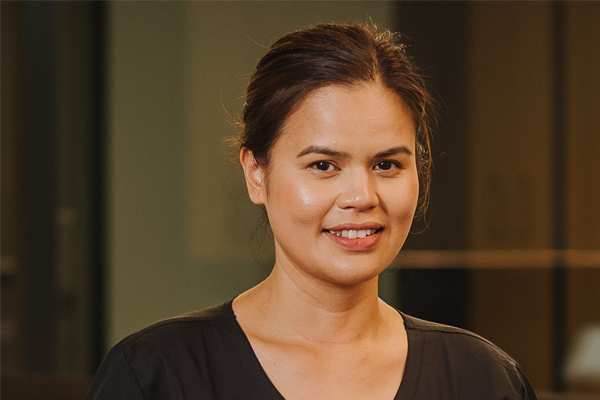Introduction
At Southern Cross Central Lakes Hospital, we are committed to providing our patients with quality care.
We ask you and your whānau to follow the recommendations below to assist us in supporting your safety and recovery.
Blood clots
A blood clot that forms in a deep vein in the muscles of the leg is known as Deep Vein Thrombosis (DVT). A clot can partially or totally block blood flow. Most blood clots form in a vein in the calf. They are less common in the thigh, and rare in other parts of the body.
Venous thromboembolism (VTE), describes the whole process by which clots form and travel through the blood stream. ‘Venous’ means to do with the veins. This is different from arterial thrombosis which can cause a stroke or heart attack. When a blood clot forms in a leg vein, it usually remains stuck to the vein wall.
Sometimes, one of two things may happen:
- Part of the blood clot may break off and travel in the blood to the lungs. Here it may block an artery and cut off blood supply. This dangerous condition is known as a pulmonary embolus (PE). A large clot in the lung is very serious and can be life-threatening.
- If a blood clot in the leg is not treated, it may lead to long-term symptoms such as pain or discomfort, swelling, rashes or in severe cases a skin ulcer. This is called post-thrombotic syndrome.
Before coming to hospital please read the Blood clots and YOU brochure. This brochure will help you assess your personal risk of suffering from VTE, actions to reduce blood clots, things to watch for, and support your post-operative recovery plan.
Prevention of blood clots
There are a number of general recommendations to reduce your risk of blood clots noted below, however we recommend you talk to your surgeon or physician about a personalised blood clot prevention plan.
Stay hydrated
Ensuring your body is well hydrated, whilst recovering from a surgical procedure, greatly reduces your chance of developing a blood clot.
As a general guide, you may be dehydrated if:
- You drink less than four glasses of water a day.
- You are going to the toilet less than four times a day.
- The colour of your urine is dark yellow.
However, you should note that drinking too much water can flush essential electrolytes from your body. If you are unsure about how much water to drink, please consult your doctor.
Keep active
Engage in light activity frequently. Although it is important to rest while recovering from surgery, movement helps your blood to circulate, reducing the chance of it pooling in your legs or lower body. Standing up, walking around or doing some leg exercises can make a difference.
Your doctor or nurse will give you recommendations of distances and frequency of exercise, as well as details of how to gradually increase your exercise. This will be individualised according to your level of general fitness and health, the procedure you have had, and how your recovery is tracking.
Wear compression stockings
Compression stockings squeeze the legs, reducing the diameter of the veins and improving blood flow.
Please consult your doctor or nurse for specific instructions on how to wear graduated compression stockings, and note:
- Compression stockings need to be applied correctly in order to be effective - otherwise they can reduce blood flow to your legs and cause injury.
- Compression stockings need to be worn at all times, including while in bed. You may be given two pairs of stockings to enable one pair to be in the wash while the other pair is in use.
- Compression stockings need to be washed and dried according to the washing instructions.
Medication
Anti-clotting medicines work by reducing the blood’s tendency to clot; however this may also increase the risk of bleeding. The aim is to get the dose just right so the blood will not clot too easily, and bleeding is less likely. Some people cannot take anti-clotting medicines if they already have a condition that makes them bleed more easily than normal.
You may be given an anti-clotting medicine for a few days or up to a few weeks, depending on your particular operation or medical condition. Check with your medical team about how long you’ll need to take the medicine for.
People who take anti-clotting medication should pay attention to possible interactions with other medication. Some medications can increase or decrease the effect of anti-clotting medication.
Please make sure that you understand your blood thinning medication plan before and after you leave hospital and take your medication(s) strictly as directed. If you do have any concerns, contact your doctor.
Medical devices you may be given to use in hospital
While in hospital you may be given other tools to reduce blood clots.
Intermittent pneumatic compression (IPC) involves a garment around the leg that is regularly inflated and deflated, to squeeze the leg. It may be over the whole leg or just the calf.
Venous foot pumps have a pad under the foot that rapidly inflates and deflates every few seconds. This stimulates blood flow in the sole of the foot. The pad is held in place by a slipper.
Covid-19
The safety, health and wellbeing of our patients and visitors are of utmost importance to us. Due to the ongoing Covid-19 situation, our requirements for patients and visitors can change frequently. We recommend that you review our Covid-19 page in advance of visiting our hospital.
Cultural or spiritual support
If you have any cultural or spiritual requests, please contact the hospital prior to your admission so we can accommodate these as best possible.
Hand hygiene
Having a surgical wound can increase the risk of infection. One of the simplest things we can do to reduce the risk of infection is to clean our hands properly. Hand hygiene is a vital component of our infection prevention protocols during your hospital visit and once you return home.
Illness
Before you come to the hospital, please let your specialist know if you are not well or have recently been unwell - including colds, coughs, diarrhoea or vomiting, as these could impact your recovery. Prior to admission you will also be asked some routine safety questions about potential Covid-19 risks to enable us to carry out a risk assessment.
Please ask whānau not to visit if they are unwell.
Information to review
Please review the following information before coming to hospital:
Medical conditions
Make sure your healthcare team is aware of anything that relates to your overall health, including:
- All existing medical conditions.
- Any medications you are taking that might lower your immunity (some examples include immune suppressants, chemotherapy or steroids).
- If you have had an antibiotic-resistant bacteria in the past.
- If you have any cuts, scrapes, wounds or skin infections.
- If you have travelled overseas, or been admitted to an overseas or New Zealand hospital, in the past 12 months.
- If you have recently undertaken any long-distance flights.
If you have any symptoms that you are unsure may be of relevance to your hospital visit, please consult your specialist prior to coming to hospital.
Smoking
If possible, we recommend you stop smoking prior to your treatment. If you would like help quitting, we suggest you visit smokefree.org.nz. Smoking can have a negative impact on the body’s healing process and cause damage to your airways, making an infection more likely.
Surgical site
Do not shave the surgical site. Shaving the area where you will have surgery can irritate the skin and increase risks of infection after your procedure. If hair does need to be removed, this will be done in the hospital by a nurse using a clipper instead of a razor.
Talk to us

We value open communication and feedback (good or bad) from both you and your whānau. Here’s how you can speak up and tell us what is going on for you:
- Please raise any concerns or ask questions, this could be with your specialist or one of our nursing team.
- Kōrero Mai - Talk to Me is a pathway for patients and whānau to speak up about any health or wellbeing concern while in hospital.
- Provide feedback. We appreciate your honest feedback following your stay as this helps us to confirm what we do well and to identify areas where we can improve.
Transportation & support
Please arrange for someone to drive you to and from hospital. New Zealand law prohibits driving following anaesthesia or after taking medications that are known to impact the ability to drive.
If you are not staying in the hospital overnight, arrange for someone to be with you for at least the first 24 hours after surgery and ensure you have plenty of help at home while you recuperate.
Weight
People who are overweight are at greater risk of infection. We recommend you talk to your doctor about how to achieve and maintain a healthy weight.
Your safety and privacy
At Southern Cross Central Lakes Hospital, keeping our patients safe and providing the best quality care is our highest priority. We encourage a safety culture that is underpinned by open communication and ongoing learning.
During your stay, you will be asked to confirm your name and other details several times. This starts when you arrive at reception and continues when you are transferred to the procedure room or operating theatre. Your specialist, anaesthetist and nurses will also take a short ‘time out’ to complete a final check immediately before your procedure begins.
Our staff will use the information you supply in the Patient Health Questionnaire to understand your health status and plan for your care.
During your treatment, some commonly used medications may not have been submitted for Medsafe NZ’s approval; these are called Section 29 Medications. Your specialist will discuss the use of these medications with you if they are required. Where your specialist prescribes a Section 29 Medication for your care, we are required to provide Medsafe with your name and your prescriber’s name.
Your privacy is important to us. Any information and personal data gathered for the purpose of your visit to Southern Cross Central Lakes Hospital is to assist in your treatment, for quality assurance activities, and to fulfil legislative requirements. Your rights provided in the Health Information Code and Privacy Act 2020 will be respected, including your right to access and correct any information held about you. You can review our full privacy statement and if you have any concerns, please contact the hospital General Manager.
To ensure a physically safe environment for patients and health practitioners, we have eliminated all possible manual lifting by using mechanical aids as well as safe positioning and holding methods.
Southern Cross Central Lakes Hospital is committed to delivering your care in accordance with the Code of the Health and Disability Services Consumers’ Rights.
